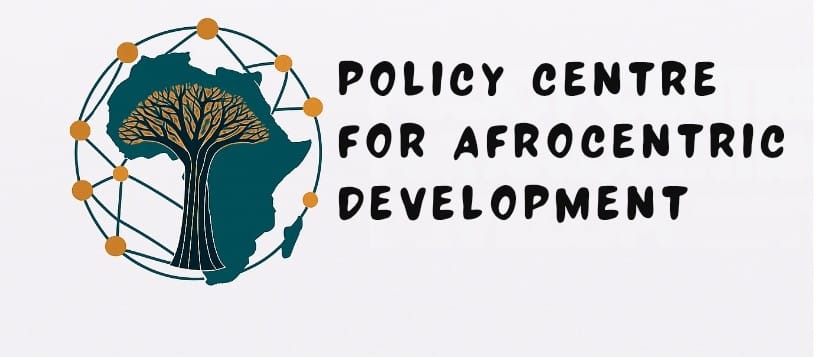Public Participation and Human Rights
People-Centred Development
At the heart of PCAD’s mission is the belief that people are not only the beneficiaries of development—they are its agents, architects, and rightful owners. For too long, development in Africa has been pursued through externally driven models that exclude the very people they claim to serve. Policies are often crafted by elites or foreign actors, while public participation is minimal, controlled, or entirely absent. As a result, the discourse on development has remained disconnected from the lived experiences of African people.
Development is endogenous—it springs from the heart of each society, drawing first on its own strengths and resources. Participation is therefore not just a democratic ideal, but a developmental necessity. When people are excluded from defining what “development” means to them and from designing the systems needed to realize it, the outcomes are not only contextually irrelevant, but also exclusionary and unsustainable.
Human rights—civil, political, social, economic, and cultural—are foundational to this process. They reinforce the idea that progress is not simply about GDP or other economic metrics, but about building a society where everyone has the opportunity to live a fulfilling and dignified life.
Our Perspective
People are both the means and the end of development—and must have a meaningful voice in shaping their own futures. When Africans are treated merely as recipients of policy rather than co-creators of their desired realities, the result is failed interventions, wasted resources, and erosion of public trust.
As such, PCAD views participation as not simply about involvement in pre-defined processes but about shaping the very vision and direction of development itself. When people are empowered to define their own priorities and implementation approaches, institutions gain legitimacy, policies become more effective, and outcomes are more relevant and just.
PCAD advocates for a rights-based approach to development. Development is seen not simply as the growth of things (which are merely means), but development of people, of the whole person, in all dimensions of life. As articulated by thinkers such as Amartya Sen, Martha Nassbaum, and others, true development must enhance people’s capabilities, expand their freedoms, and enable them to lead lives they value—with dignity, creativity, and purpose.
Our Areas of Work
Analysis of exclusionary governance and policy processes
Including how inherited structures and elite capture continue to marginalize public voice
Support for democratic constitution-making and legal reform
Ensuring laws reflect protect human rights, and enable broad-based participation
Promotion of civic education and legal empowerment
Especially for historically marginalized groups including women, youth, ethnic minorities, and rural communities
Capacity building for civil society and grassroots movements
Enabling them to influence public policy and expand civic space
Human Rights Impact Assessments
Analyse how policies, laws, budgets and programs affect human rights - such as the impact of debt-induced austerity measures, trade agreements, regulatory instruments, investment decisions and 'development' projects on human rights.
Schedule a call
Connecting the Dots
Public participation and human rights are foundational to every dimension of Africa’s development. When people are excluded from shaping decisions and denied their rights, the result is not only injustice—it is systemic dysfunction. Policies become detached from local realities, institutions lose legitimacy, and development becomes extractive, unsustainable, and unaccountable.
The consequences of Africa’s limited economic sovereignty are particularly stark. When the continent cannot control its trade terms, production systems, or financial flows, it is locked into cycles of poverty, resource drain, and unsustainable debt. Mounting debt burdens often lead to austerity measures—imposed through external conditionalities—that result in deep cuts to public spending. It is the poor and marginalized who bear the brunt: access to health care, education, housing, and social protection is curtailed, undermining human rights and further eroding trust in public institutions.
The denial of rights reinforces this cycle. When people cannot access justice, express dissent, organize collectively, or influence public policy, inequality deepens and structural reform becomes impossible. The result is a system where disempowerment feeds underdevelopment—and underdevelopment entrenches disempowerment.
Conversely, when people are meaningfully included in shaping laws, policies, and institutions, development becomes more just, more relevant, and more resilient. Public participation strengthens transparency, improves policy design, safeguards natural resources, and ensures that all sectors—from economic transformation to climate action—are rooted in the lived experiences and aspirations of African communities.
Our Goal
PCAD’s goal is to advance a rights-based, people-centred model of development that is rooted in dignity and justice. We support the establishment of governance systems and policy frameworks that recognize people not merely as recipients of development, but as full agents —capable of shaping their futures.
We work to promote development that enhances people’s capabilities, expands their freedoms, and enables the full flourishing of individuals and communities—socially, economically, culturally, and politically.
Stay Ahead.
Subscribe for Expert Insights.
You can unsubscribe at any time using the link in the footer of our emails.
